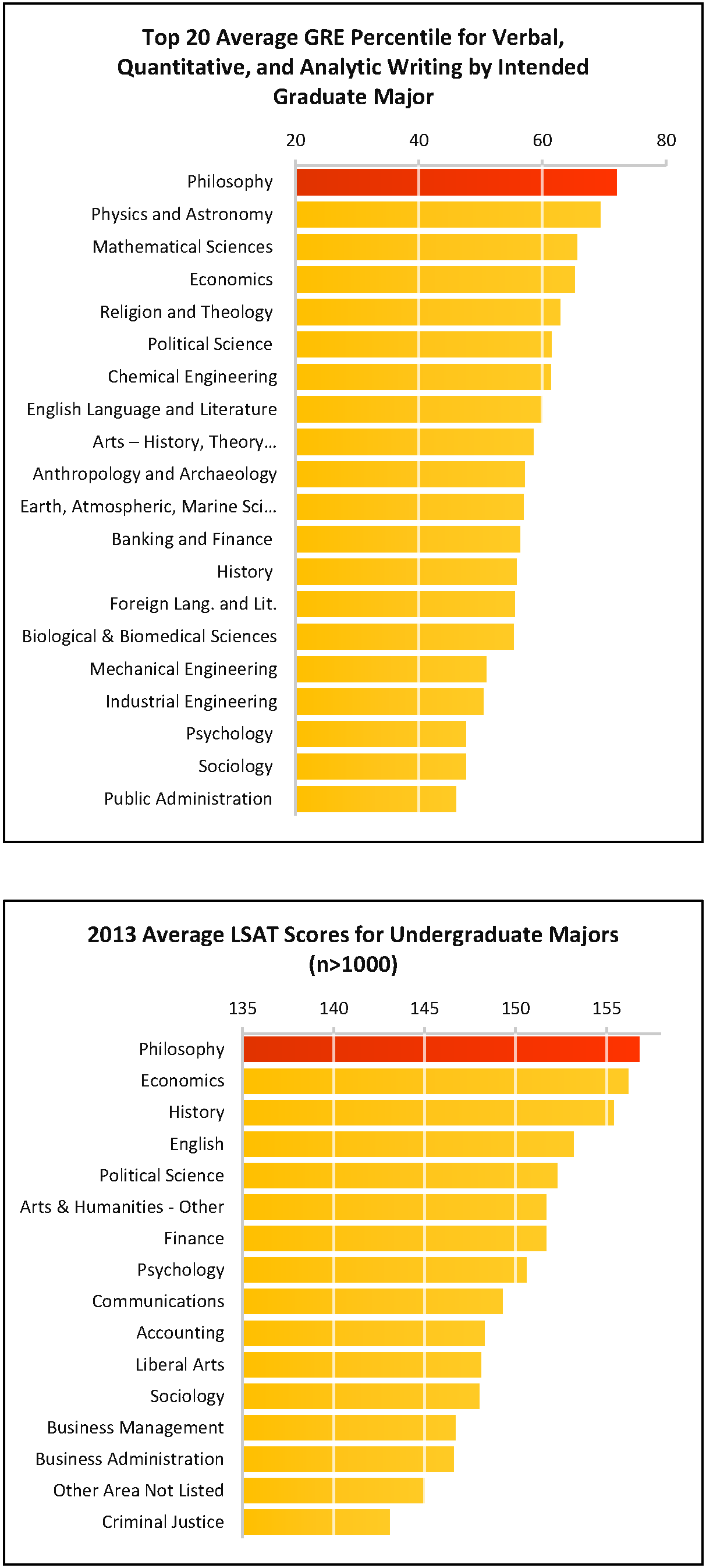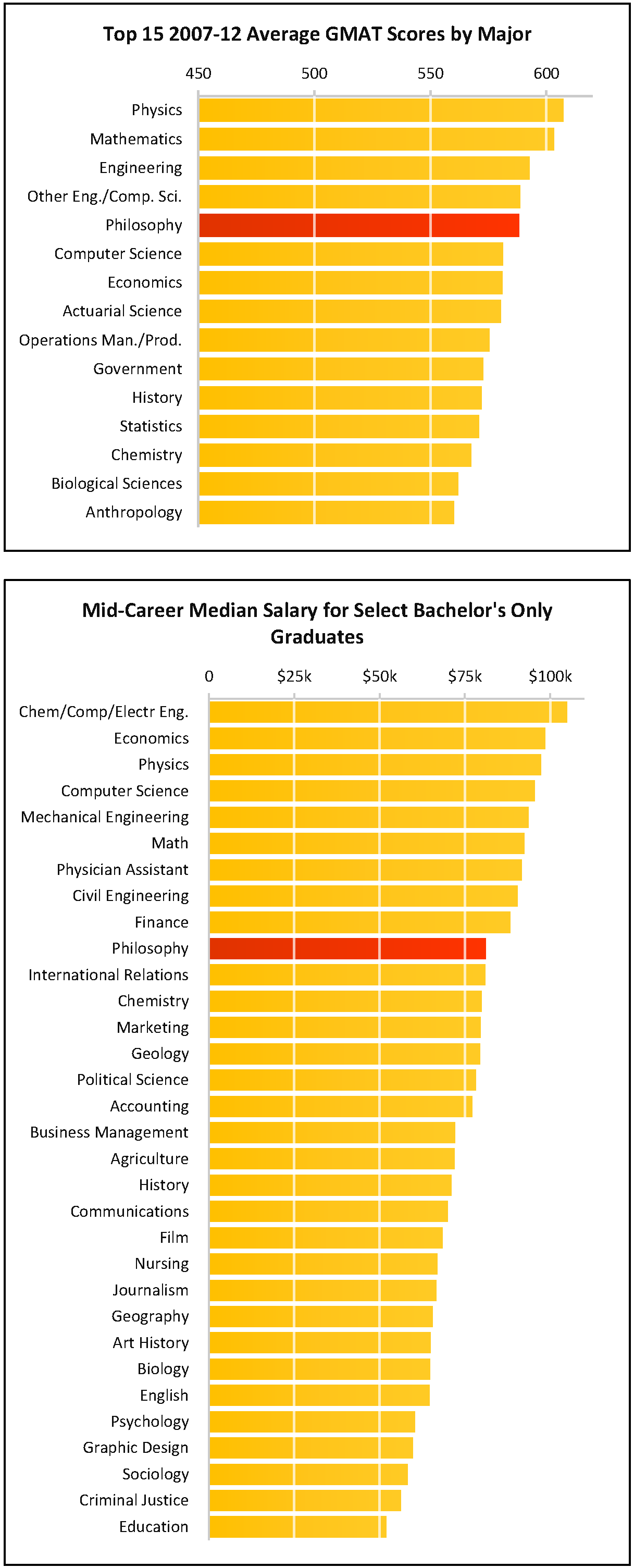Philosophy addresses fundamental questions that engage all reflective people, but which apparently cannot be answered by the empirical sciences: Are our actions determined by forces over which we lack control, or is free choice possible? What distinguishes people from (non-human) animals? Are there objective standards of right and wrong, or is morality subjective? Does altruism exist or are people essentially self-interested? What are the limits of human knowledge? Can machines think? What is the relationship between mind and body? Is there a God? Our majors explore topics such as these in a range of introductory and advanced courses, including “Introduction to Ethics”, “History of Philosophy: Empiricists to Kant”, “Philosophy of Mind”, and “Freedom and Determinism”.
Professor Aaron Zimmerman describes philosophy here:
Philosophy is a fascinating subject, but sometimes people wonder about the practical career-value of a Philosophy degree. Such concerns are misplaced. Majors in Philosophy typically do very well. The evidence shows that a Philosophy degree prepares students well for professional careers and graduate training in disciplines across the humanities, law, finance, business, medicine, and the social sciences.
Philosophy majors are trained to think analytically, to engage in rigorous argument, and to communicate clearly and effectively in writing. While the questions studied in Philosophy might seem abstract, its emphasis on critical argument and analysis enables students to graduate with a highly valuable professional skill set in critical thought and clear writing.
Evidence of the practical value of a Philosophy degree can be seen in a number of ways. The results from standardized testing across multiple fields is a useful metric, and indicate that Philosophy majors are among the best performers overall. Many business schools, law schools, and graduate schools take notice of this pattern. Philosophy majors also tend to do well in their careers based on income trends.


Chart 1: Educational Testing Service, 2014 (https://www.ets.org/s/gre/pdf/gre_guide_table4.pdf)
Chart 2: Profile of GMAT Candidates, 2007-08 to 2011-12 (http://files.eric.ed.gov/fulltext/ED543174.pdf)
Chart 3: Note: Some other Majors had LSAT Scores Higher than Philosophy, but these had fewer than 1,000 LSAT test takers LSAC data request by Derek Muller, Pepperdine University School of Law (http://excessofdemocracy.com/blog/2014/4/the-best-prospective-law-studen...)
Chart 4: The Wall Street Journal, “Degrees that Pay You Back” (http://online.wsj.com/public/resources/documents/info-Degrees_that_Pay_y...)

